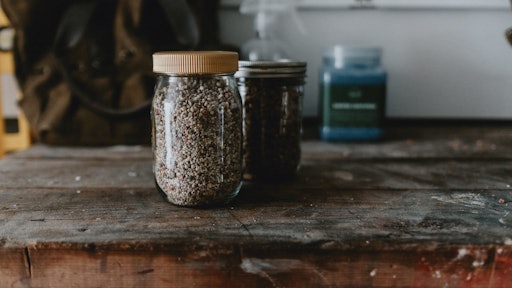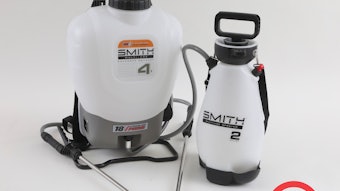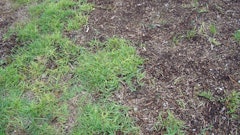
Does fertilizer go bad or lose its effectiveness? Knowing answers to these questions can help you maximize your efforts and avoid waste. In this guide, we’ll explore different types of fertilizers, how long does fertilizer last and essential storage tips to keep your fertilizer from going bad.
Types of fertilizer and their shelf life
Granular fertilizer
Granular fertilizers are popular for their long shelf life. If you’re asking does lawn fertilizer go bad in granular form, the answer is no, provided it’s stored properly. Granular fertilizers can last indefinitely as long as they are kept dry and away from moisture. However, if moisture gets in, it can cause clumping, which affects its effectiveness.
Liquid fertilizer
Liquid fertilizers are typically more concentrated and faster acting than granular options but come with a shorter shelf life. Depending on the formulation, liquid fertilizers can last around five to 10 years if kept sealed and stored properly. Once opened, they are more prone to degradation, particularly if exposed to air and moisture.
Organic fertilizer
Organic fertilizers, such as compost or manure-based options, have shorter shelf lives compared to synthetic fertilizers. Since they rely on natural breakdown processes, they may lose their potency after a year or two. Improperly stored organic fertilizers can harbor bacteria or mold, making them less effective and potentially harmful to plants.
Signs that fertilizer has gone bad
Clumping and hardening (granular fertilizer)
If your granular fertilizer has absorbed moisture, you may notice that it has clumped together or hardened. This makes it difficult to spread and may reduce the even distribution of nutrients. Clumped fertilizer can sometimes be crushed and used, but in more extreme cases, it may not be salvageable.
Separation and sediment (liquid fertilizer)
Liquid fertilizers can separate over time, especially if stored improperly. If you notice that the contents of your liquid fertilizer have separated into layers or there’s sediment at the bottom, it might indicate that the product is no longer usable. Shaking the bottle can sometimes resolve this issue, but not always.
Foul odor and mold growth (organic fertilizer)
Organic fertilizers that have gone bad may emit a foul odor or show signs of mold growth. This happens when the natural decomposition process continues beyond what’s beneficial. If your organic fertilizer smells off or appears moldy, it may no longer be safe or effective to use.
Factors that affect fertilizer longevity
Several environmental factors can influence the shelf life of fertilizer. Here’s what to watch out for:
- Moisture and humidity: Moisture is the primary enemy of both granular and liquid fertilizers. Granular fertilizers can clump, while liquid fertilizers can become diluted or contaminated if exposed to excessive moisture.
- Temperature extremes: High temperatures can degrade certain fertilizers, especially liquid formulations. Freezing temperatures, on the other hand, can cause liquid fertilizers to separate or crystallize.
- Storage conditions: Where you store your fertilizer is crucial. Fertilizers should be kept in cool, dry places, away from direct sunlight and extreme temperature fluctuations. A garage or shed often provides the ideal conditions, as long as it’s not too damp or too hot.
Best practices for storage
To extend the shelf life of your fertilizer, proper storage is essential. Always store granular fertilizers in airtight containers to keep moisture out, and make sure that liquid fertilizers are tightly sealed after each use. Place fertilizers in a cool, dry area, like a garage or shed, away from direct sunlight and temperature extremes.
Organizing your fertilizer stash is another smart move. Label bags or bottles with the date of purchase to help you track how long you’ve had them. Store fertilizers off the ground, either on shelves or in bins, to prevent them from being damaged by moisture or pests.
Tips on how to prevent fertilizer from going bad
Preventing fertilizer from going bad can save you money and reduce waste. Here are some key tips to ensure your fertilizers last as long as possible:
- Inspect packaging before purchase: When buying fertilizers, check that the packaging is intact and not damaged.
- Use airtight containers: For granular fertilizers, transfer any opened bags into airtight plastic bins or containers to keep moisture out. Liquid fertilizers should always be tightly sealed after use.
- Keep fertilizers off the ground: Store fertilizers on shelves or raised surfaces to protect them from potential water leaks or flooding in your storage area.
- Avoid overbuying: Only purchase the amount of fertilizer you’ll need for the season to avoid long-term storage and the associated risks of degradation.
- Check expiration dates: Liquid and organic fertilizers may have expiration dates. Rotate older products to the front of your storage area so that they get used first, and avoid holding onto products for too long.
- Periodic stirring or shaking of liquid fertilizer: Shake liquid fertilizers regularly to prevent sediment from forming at the bottom of the container and to maintain an even nutrient distribution.

























